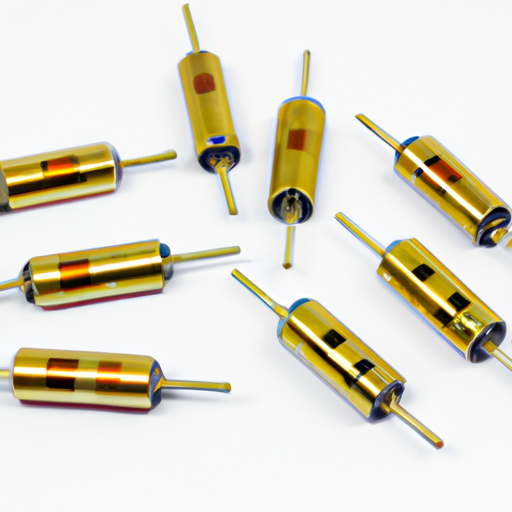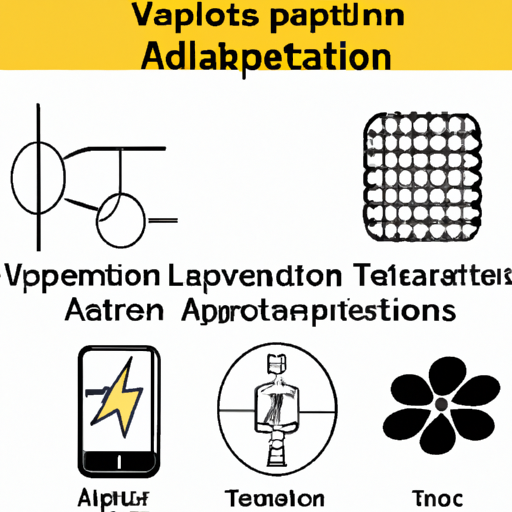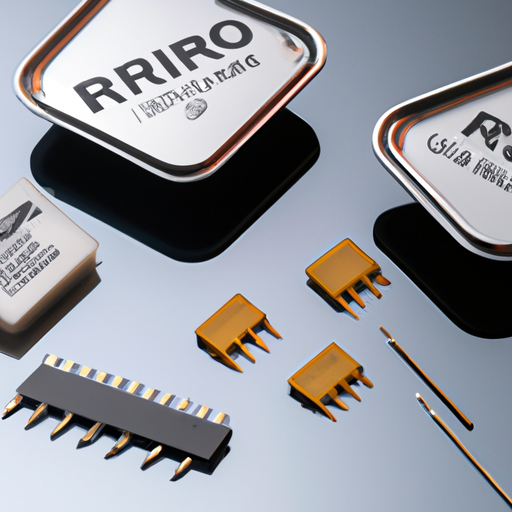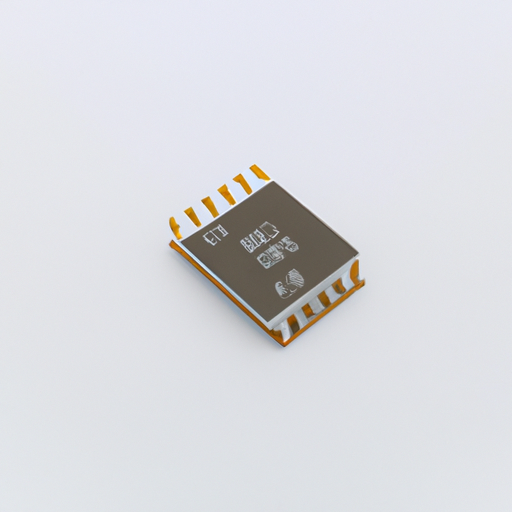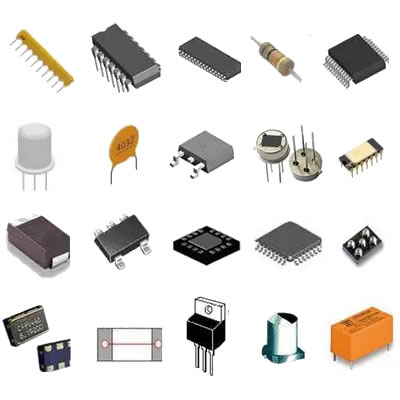What are the product features of pulse capacitors?
What are the Product Features of Pulse Capacitors?
I. Introduction
A. Definition of Pulse Capacitors
Pulse capacitors are specialized capacitors designed to handle high-energy pulses and rapid discharge cycles. Unlike standard capacitors, which may be optimized for continuous operation, pulse capacitors are engineered to deliver energy quickly and efficiently, making them essential in applications where rapid energy release is critical.
B. Importance of Pulse Capacitors in Various Applications
Pulse capacitors play a vital role in numerous industries, including power electronics, automotive, telecommunications, medical devices, and industrial automation. Their ability to store and release energy in short bursts allows for improved performance in applications such as inverters, electric vehicles, and signal processing equipment. As technology advances, the demand for efficient energy storage solutions continues to grow, further highlighting the importance of pulse capacitors.
C. Overview of the Article
This article will explore the basic principles of pulse capacitors, their key features, types, applications, and considerations for selection. By understanding these aspects, readers will gain insight into the significance of pulse capacitors in modern technology.
II. Basic Principles of Pulse Capacitors
A. How Pulse Capacitors Work
1. Energy Storage Mechanism
Pulse capacitors store electrical energy in an electric field created between two conductive plates separated by an insulating material (dielectric). When a voltage is applied, the capacitor charges, accumulating energy. The energy stored can be released rapidly when needed, making pulse capacitors ideal for applications requiring quick bursts of power.
2. Discharge Characteristics
The discharge characteristics of pulse capacitors are crucial for their performance. They can release stored energy in a very short time frame, often in microseconds or nanoseconds. This rapid discharge capability is essential in applications such as laser systems, where quick energy release is necessary for optimal performance.
B. Comparison with Other Types of Capacitors
1. Electrolytic Capacitors
Electrolytic capacitors are designed for high capacitance values and are commonly used in power supply applications. However, they are not suitable for high-frequency applications due to their slower discharge rates and higher equivalent series resistance (ESR). In contrast, pulse capacitors excel in high-frequency scenarios, making them more suitable for applications requiring rapid energy release.
2. Ceramic Capacitors
Ceramic capacitors are known for their stability and reliability, but they typically have lower capacitance values compared to pulse capacitors. While ceramic capacitors can handle high frequencies, they may not provide the same energy density or discharge rates as pulse capacitors, limiting their use in high-energy applications.
III. Key Features of Pulse Capacitors
A. High Energy Density
1. Explanation of Energy Density
Energy density refers to the amount of energy stored per unit volume or mass. Pulse capacitors are designed to have high energy density, allowing them to store significant amounts of energy in a compact form factor. This feature is particularly beneficial in applications where space is limited.
2. Applications Requiring High Energy Density
High energy density is crucial in applications such as electric vehicles, where space and weight constraints are significant. Pulse capacitors enable efficient energy storage and delivery, enhancing the overall performance of the vehicle's power system.
B. Fast Discharge Rates
1. Importance of Rapid Discharge
The ability to discharge energy quickly is one of the defining features of pulse capacitors. Rapid discharge is essential in applications such as pulsed lasers, where a quick burst of energy is required to generate a laser pulse.
2. Applications Benefiting from Fast Discharge
Applications in telecommunications, such as signal processing and transmission, also benefit from the fast discharge capabilities of pulse capacitors. They can help maintain signal integrity and reduce distortion during high-speed data transmission.
C. Voltage Ratings
1. Overview of Voltage Ratings
Pulse capacitors are available in various voltage ratings, allowing them to be used in high-voltage applications. The voltage rating indicates the maximum voltage the capacitor can handle without risk of failure.
2. Importance in High-Voltage Applications
In power electronics, such as inverters and converters, pulse capacitors must withstand high voltages while maintaining performance. Selecting the appropriate voltage rating is critical to ensure reliability and safety in these applications.
D. Temperature Stability
1. Operating Temperature Range
Pulse capacitors are designed to operate within specific temperature ranges. Temperature stability is essential for maintaining performance and reliability, especially in environments with fluctuating temperatures.
2. Impact of Temperature on Performance
Extreme temperatures can affect the dielectric material and overall performance of the capacitor. Pulse capacitors with good temperature stability can operate effectively in a wide range of conditions, making them suitable for various applications.
E. Low Equivalent Series Resistance (ESR)
1. Definition of ESR
Equivalent series resistance (ESR) is a measure of the resistance encountered by the current flowing through a capacitor. Low ESR is desirable in pulse capacitors, as it allows for more efficient energy transfer and reduces energy losses during discharge.
2. Benefits of Low ESR in Pulse Applications
Low ESR enhances the performance of pulse capacitors in high-frequency applications, allowing for faster discharge rates and improved efficiency. This feature is particularly important in applications such as power amplifiers and RF circuits.
F. Long Cycle Life
1. Definition of Cycle Life
Cycle life refers to the number of charge and discharge cycles a capacitor can undergo before its performance degrades. Pulse capacitors are designed for long cycle life, ensuring reliability in demanding applications.
2. Importance in Reliability and Longevity
A long cycle life is crucial in applications such as electric vehicles and industrial equipment, where capacitors are subjected to frequent charging and discharging. Reliable performance over time reduces maintenance costs and enhances the overall lifespan of the system.
IV. Types of Pulse Capacitors
A. Film Capacitors
Film capacitors are made from thin plastic films as the dielectric material. They offer excellent stability, low ESR, and high energy density, making them suitable for high-frequency applications and power electronics.
B. Ceramic Capacitors
Ceramic capacitors are known for their reliability and stability. They are often used in applications requiring high capacitance values and low ESR. However, their energy density may not match that of film or tantalum capacitors.
C. Tantalum Capacitors
Tantalum capacitors are known for their high capacitance and voltage ratings. They are often used in compact electronic devices where space is limited. However, they can be more expensive than other types of capacitors.
D. Supercapacitors
Supercapacitors, also known as ultracapacitors, are designed for high energy storage and rapid discharge. They bridge the gap between traditional capacitors and batteries, making them suitable for applications requiring quick bursts of energy.
V. Applications of Pulse Capacitors
A. Power Electronics
In power electronics, pulse capacitors are used in inverters and converters to manage energy flow efficiently. Their ability to handle high energy pulses makes them essential for renewable energy systems and electric vehicles.
B. Automotive Industry
Pulse capacitors are increasingly used in electric vehicles and hybrid systems, where they provide quick bursts of energy for acceleration and regenerative braking. Their high energy density and fast discharge rates enhance vehicle performance.
C. Telecommunications
In telecommunications, pulse capacitors are used in signal processing and transmission systems. They help maintain signal integrity and reduce distortion, ensuring reliable communication.
D. Medical Devices
Pulse capacitors are critical in medical devices such as defibrillators and imaging equipment. Their ability to deliver rapid energy pulses is essential for effective treatment and diagnostics.
E. Industrial Equipment
In industrial automation and robotics, pulse capacitors provide the necessary energy for quick movements and operations. Their reliability and long cycle life make them ideal for demanding environments.
VI. Considerations When Selecting Pulse Capacitors
A. Application Requirements
When selecting pulse capacitors, it is essential to consider the specific requirements of the application, including voltage, current, and frequency. Understanding these parameters ensures optimal performance and reliability.
B. Environmental Factors
Environmental factors such as temperature, humidity, and vibration can impact capacitor performance. Selecting capacitors designed to withstand these conditions is crucial for maintaining reliability in various environments.
C. Cost vs. Performance
Balancing cost and performance is a critical consideration when selecting pulse capacitors. While high-performance capacitors may come at a premium, their benefits in terms of efficiency and reliability can justify the investment.
VII. Conclusion
A. Recap of Key Features and Benefits
Pulse capacitors offer unique features such as high energy density, fast discharge rates, and low ESR, making them essential components in various applications. Their ability to deliver rapid energy bursts enhances performance in power electronics, automotive systems, telecommunications, and medical devices.
B. Future Trends in Pulse Capacitor Technology
As technology continues to evolve, pulse capacitors are expected to see advancements in materials and design, leading to improved performance and efficiency. Innovations in energy storage solutions will further enhance their role in modern electronic systems.
C. Final Thoughts on the Importance of Pulse Capacitors in Modern Technology
In conclusion, pulse capacitors are critical components in today's technology landscape. Their unique characteristics and capabilities make them indispensable in a wide range of applications, driving innovation and efficiency in various industries. Understanding their features and benefits is essential for engineers and designers looking to optimize their systems for performance and reliability.

